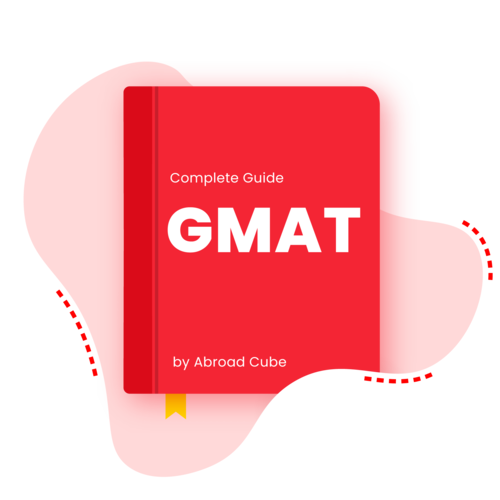-
hello@abroadcube.com
Mail us
-
Call For Help:
98779 83783
-
Whatsapp Us
70090 34921

GMAT is a computer-adaptive test with a total duration of 3 hours and 07 minutes. The Exam pattern has 80 questions distributed in four sections. In between the test, breaks of 8 minutes each are entirely optional.
The difficulty level of questions depends on your performance. If you answer the question correctly, your next question will be more complicated than the previous one, but if you answer it incorrectly, you will have the same level of inquiry. Students have the option to choose the order of their exam. There are three orders:
| ORDER 1 | ORDER 2 | ORDER 3 |
|
Analytical Writing Assessment Integrated Reasoning |
Verbal Reasoning | Quantitative Reasoning |
| Optional Break - 8 minutes | ||
| Quantitative Reasoning | Quantitative Reasoning | Verbal Reasoning |
| Optional Break - 8 minutes | ||
| Verbal Reasoning |
Analytical Writing Assessment Integrated Reasoning |
Analytical Writing Assessment Integrated Reasoning |
| Section | Time | Questions | Brief Detail |
|---|---|---|---|
| Analytical Writing | 30 minutes | 1 | You must write an argument or issue based essay and explain your ideas correctly. You have only one question of essay writing. This section scores from 0 to 6.0. |
| Integrated Reasoning | 30 minutes | 12 | Integrated reasoning has 12 questions based on Multi-Source Reasoning, Table Analysis, Graphics Interpretation, and Two-Part Analysis. Answering questions in this section will show your ability to analyze and synthesize information from different resources. Questions in this section scores from 1.0 to 8.0. |
| Quantitative Reasoning | 62 minutes | 31 | Quantitative reasoning has two sections (a) Problem Solving and (b) Data Sufficiency. Candidates will get a total 31 questions, 13-14 questions in data sufficiency and 17-18 questions in problem solving. These questions will test your ability to solve quantitative questions. |
| Verbal Reasoning | 65 minutes | 36 | Verbal reasoning tests your ability to analyze and evaluate written material by solving 36 questions in three sections (a) critical reasoning (b) comprehension reading and (c) sentence correction. |
